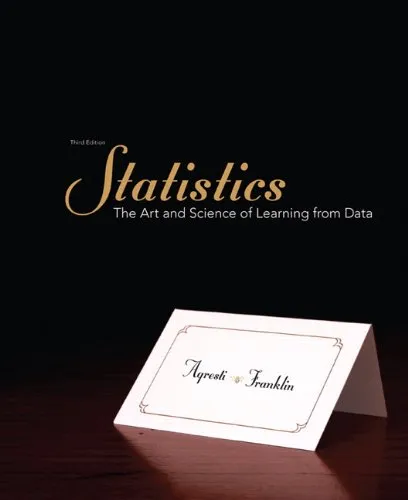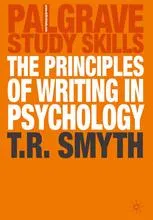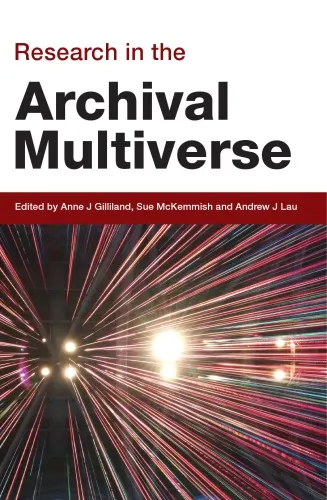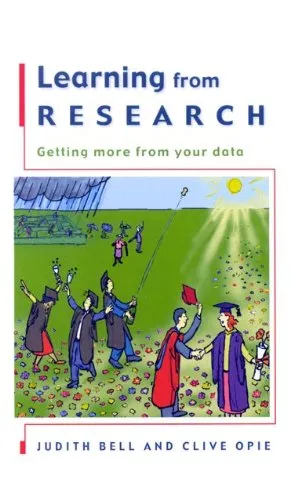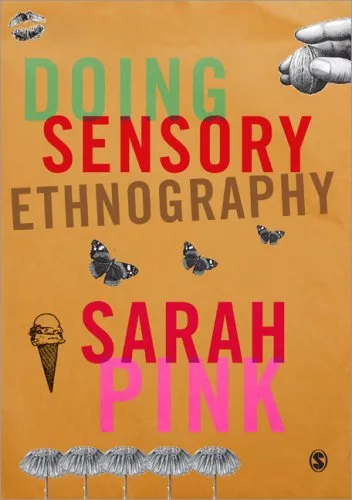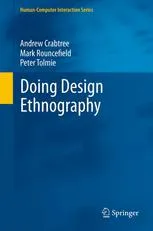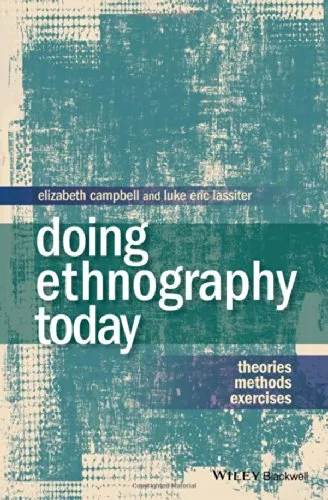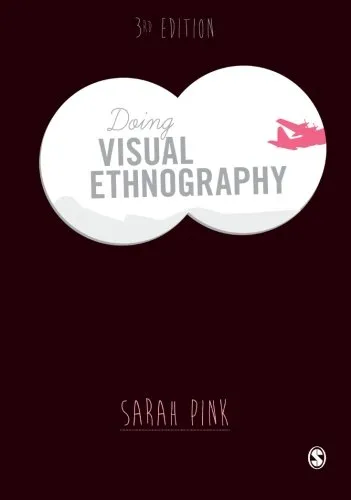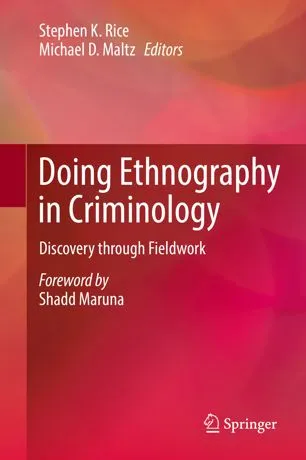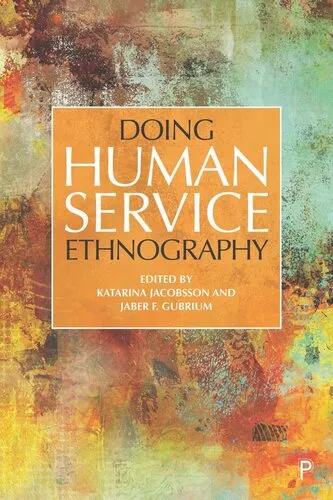Doing Critical Ethnography
4.5
بر اساس نظر کاربران

شما میتونید سوالاتتون در باره کتاب رو از هوش مصنوعیش بعد از ورود بپرسید
هر دانلود یا پرسش از هوش مصنوعی 2 امتیاز لازم دارد، برای بدست آوردن امتیاز رایگان، به صفحه ی راهنمای امتیازات سر بزنید و یک سری کار ارزشمند انجام بدینکتاب های مرتبط:
معرفی کتاب Doing Critical Ethnography
کتاب Doing Critical Ethnography اثری منحصربهفرد و ارزشمند از جیم توماس است که به بررسی روششناسی انتقادی در مردمنگاری (Ethnography) میپردازد. این کتاب ابزاری کلیدی برای محققان علوم اجتماعی، دانشجویان و علاقهمندان به درک اجتماعی پیچیده و چالشبرانگیز زندگی روزمره ارائه میدهد. این اثر بر اساس ترکیبی از تحلیل عمیق مفهومی، کاربرد عملی، و ارائه دیدگاههایی انتقادی نوشته شده است که به کاربرد روششناسی Ethnography عمق میبخشد.
خلاصه کامل کتاب
در این کتاب، نویسنده تلاش میکند معنای روششناسی مردمنگاری، بهویژه در قالب انتقادی، را به دقت ترسیم کند. رویکرد انتقادی منشأ این روش تحقیق را به عوامل فرهنگی، اجتماعی و سیاسی پیوند میزند. Doing Critical Ethnography مرزهای Ethnography سنتی را گسترش داده و لایههای پیچیدهای از قدرت، ایدئولوژی و تأثیرات اجتماعی را کشف میکند. مخاطب با هدایت این کتاب میتواند نگاههای انتقادی به چگونگی شکلگیری جوامع و نحوه تعامل ساختارهای قدرت را بررسی کند.
علاوه بر بررسی تئوریهای کلیدی، این کتاب روشهای عملی متعددی را برای انجام تحقیق Ethnography انتقادی معرفی میکند که در نهایت به محققان کمک میکند تحلیلهای عمیقتری از پدیدههای اجتماعی و فرهنگی ارائه دهند. همچنین، این اثر به بررسی برخی چالشهای اخلاقی، محدودیتها و ملاحظات میپردازد که میتواند در این نوع تحقیق بروز کند.
نکات کلیدی از کتاب
- تعریف دقیق و روشن از مردمنگاری انتقادی (Critical Ethnography).
- تلفیق مفاهیم نظری و مثالهای کاربردی برای درک بهتر.
- بیان اهمیت اخلاق در تحقیقات Ethnography و نحوه رویارویی با مسائل حساس.
- شناسایی ارتباط میان مطالعات Ethnography و عدالت اجتماعی.
- بررسی ساختار قدرت و نقش آن در جامعهشناسی فرهنگی.
جملات معروف از کتاب
“Critical ethnography isn't about telling the story of the oppressed – it's about giving them the tools to tell their own stories.”
“Every ethnographic act is political, whether we acknowledge it or not.”
“Ethnography, when critical, becomes the art of seeing beneath the surface, revealing what is hidden by power and ideology.”
چرا این کتاب اهمیت دارد؟
کتاب Doing Critical Ethnography نه فقط یک راهنمای عملی است بلکه بهعنوان منبعی فلسفی و مفهومی نیز شناخته میشود. در دنیای آکادمیک، این اثر بهطور خاص برای افرادی که میخواهند تحقیقاتشان پیوند عمیقی با تغییرات اجتماعی و عدالت اجتماعی داشته باشد، بسیار مناسب است. اهمیت این اثر در توانایی نویسنده در گسترش فهم ما از تحقیقات اجتماعی، ارتباط میان قدرت و زندگی روزمره، و بررسی شیوههای مقاومت و تغییر اجتماعی نهفته است.
برای محققانی که به دنبال ادغام تئوری با عمل هستند و مایلاند درک بهتری از واقعیتهای جامعه ارائه دهند، این کتاب چراغ راهی موثر و گامبهگام است. تاکید بر مسائل فلسفی و اخلاقی تحقیقات و نگاه پیچیده به تعاملات انسانی از دیگر دلایلی است که این کتاب ارزشمند شناخته شده است.
"Doing Critical Ethnography" is an insightful and foundational text for scholars, researchers, and students engaging with qualitative inquiry in social sciences. Authored by Jim Thomas, this book offers a comprehensive framework for conducting ethnographic research, while emphasizing a critical approach that interrogates power dynamics, social inequalities, and societal structures. This introduction provides a glimpse into the book's essence, its significance, and the key lessons that readers can extract from its pages.
Summary of the Book
"Doing Critical Ethnography" sets itself apart by merging the rich tradition of ethnographic methodology with a strong commitment to critical analysis. Ethnography, at its core, is a research method aimed at understanding cultures, behaviors, rituals, and everyday life from the perspective of those being studied. This book, however, extends the traditional approach by embedding analysis within the context of power, inequality, and social change.
Divided into clear and logically sequenced sections, the book outlines the theoretical underpinnings of critical ethnography, explains key methodologies, and delves into practical techniques for conducting fieldwork and analyzing data. From negotiating access to communities, building trust, conducting interviews, and developing field notes, to identifying patterns in data, the text serves as both a theoretical treatise and a practical guide.
Importantly, Thomas encourages readers to view ethnographic research as not just a method of observation, but as a platform for challenging oppressive structures and catalyzing social transformation. By emphasizing reflexivity and critical engagement, the book underscores the ethical responsibility of researchers to amplify the voices of marginalized communities rather than exploit them.
Key Takeaways
- Critical lens in ethnography: The book champions an ethnographic practice embedded in the analysis of power, justice, and inequality.
- Emphasis on reflexivity: Researchers are guided to critically examine their own positionality, privilege, and potential biases in the research process.
- Steps for actionable research: Practical strategies are provided for engaging communities and conducting fieldwork that leads to real-world impact.
- Navigating ethical dilemmas: Thomas provides an essential discussion on the ethical responsibilities of critical ethnographers, especially when working with vulnerable communities.
- Theory meets practice: The book bridges theoretical concepts with their practical application, making it accessible for both academic scholars and novice researchers.
Famous Quotes from the Book
"Critical ethnography does not simply study the world; it seeks to change it."
"Reflexivity is not an end in itself but a means of ensuring that ethnographic work remains accountable to those whose lives we study."
"The act of listening, interpreting, and representing is never neutral; it is shaped by history, culture, and power."
Why This Book Matters
"Doing Critical Ethnography" is not just a manual for conducting ethnographic research; it is a call to action. It challenges the status quo of traditional ethnography, urging researchers to engage with ongoing struggles for equity and justice. In an era where global inequalities, climate crises, and cultural clashes dominate societal discourse, this book provides an invaluable lens for understanding and addressing these critical issues.
Moreover, the emphasis on reflexivity fosters an ethical and respectful engagement with communities being studied, ensuring that their voices are not overshadowed by the researcher's interpretations. This makes the book an essential resource for academics, practitioners, and anyone invested in advancing equity-driven research.
Whether you are a student, a seasoned researcher, or someone curious about how ethnography can serve as a tool for societal change, "Doing Critical Ethnography" equips you with the knowledge and inspiration needed to make a meaningful impact. The book goes beyond methodology—it instills in readers a sense of responsibility and advocacy, making it a cornerstone text in the field of critical research.
دانلود رایگان مستقیم
شما میتونید سوالاتتون در باره کتاب رو از هوش مصنوعیش بعد از ورود بپرسید
دسترسی به کتابها از طریق پلتفرمهای قانونی و کتابخانههای عمومی نه تنها از حقوق نویسندگان و ناشران حمایت میکند، بلکه به پایداری فرهنگ کتابخوانی نیز کمک میرساند. پیش از دانلود، لحظهای به بررسی این گزینهها فکر کنید.
این کتاب رو در پلتفرم های دیگه ببینید
WorldCat به شما کمک میکنه تا کتاب ها رو در کتابخانه های سراسر دنیا پیدا کنید
امتیازها، نظرات تخصصی و صحبت ها درباره کتاب را در Goodreads ببینید
کتابهای کمیاب یا دست دوم را در AbeBooks پیدا کنید و بخرید
1360
بازدید4.5
امتیاز0
نظر98%
رضایتنظرات:
4.5
بر اساس 0 نظر کاربران
Questions & Answers
Ask questions about this book or help others by answering
No questions yet. Be the first to ask!


